Die of the Dead is a dice game. Obvious statement is obvious, but acknowledging what being a dice game means and how it feels to play is fundamental to designing one. There’s going to be a lot of randomness, and we need to know when to lean into it, and when to mitigate it.
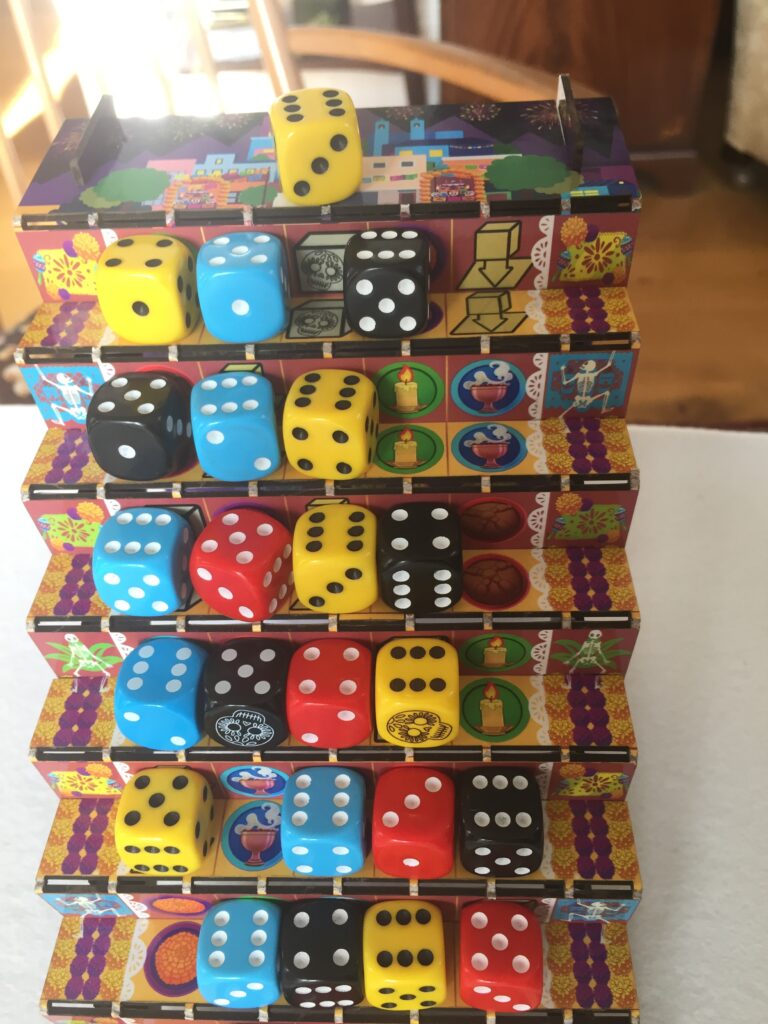
The joy of the game revealed itself in early playtesting. People shaking a casket and revealing a roll against the odds. Tables don’t erupt in cheers and laughter when the expected happens, it’s when the unexpected happens- someone with just one die rolls higher than a player with four. When designing a dice game it’s about taking those moments of output randomness, and embracing them without making them too punitive or punishing for players on the losing end.
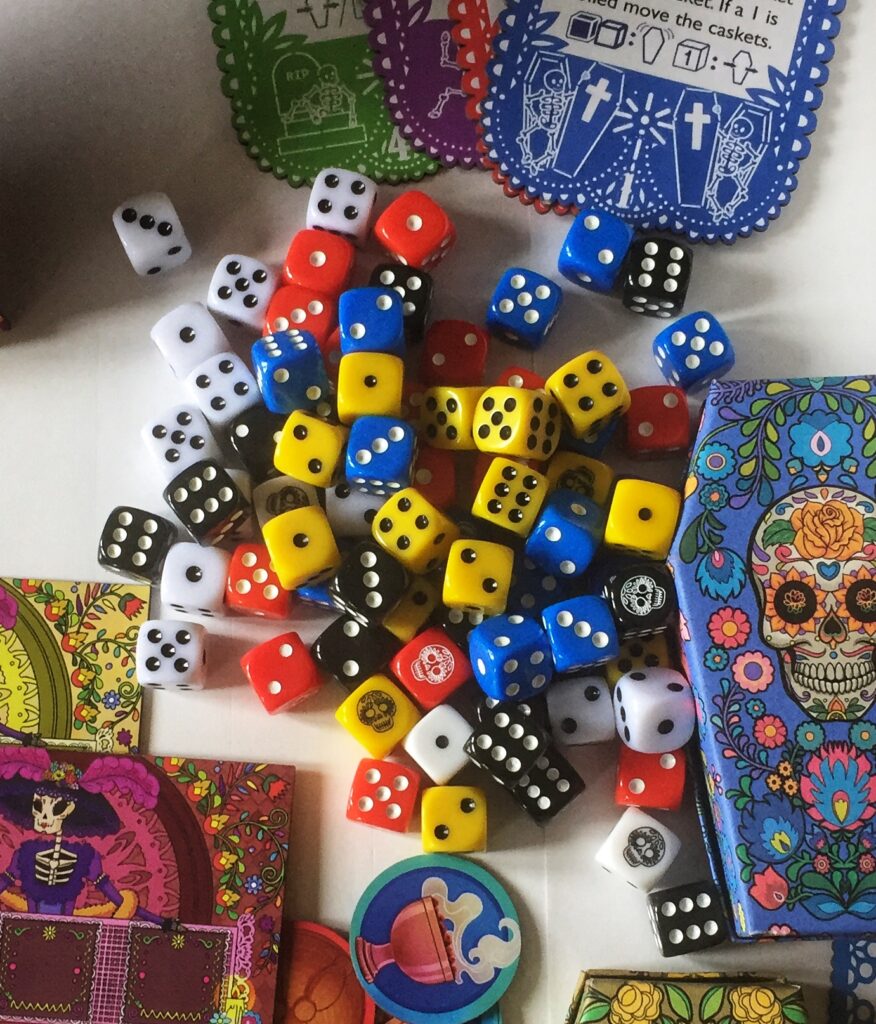
One of the earliest decisions was about what type of dice to have. Original playtests of dice numbered 1,2 & 3 had less output randomness, but also less variability. If you had more dice then another player you were much more likely to win, to the point it was almost a given. This also didn’t allow us to do much more with the small amount of values on the dice. When we changed to 1-6 a new problem emerged- maths. As much as I love maths (and I do), going by totals on the dice slowed things down to the extend we needed to change it.
Example:
Which colour has the highest total?
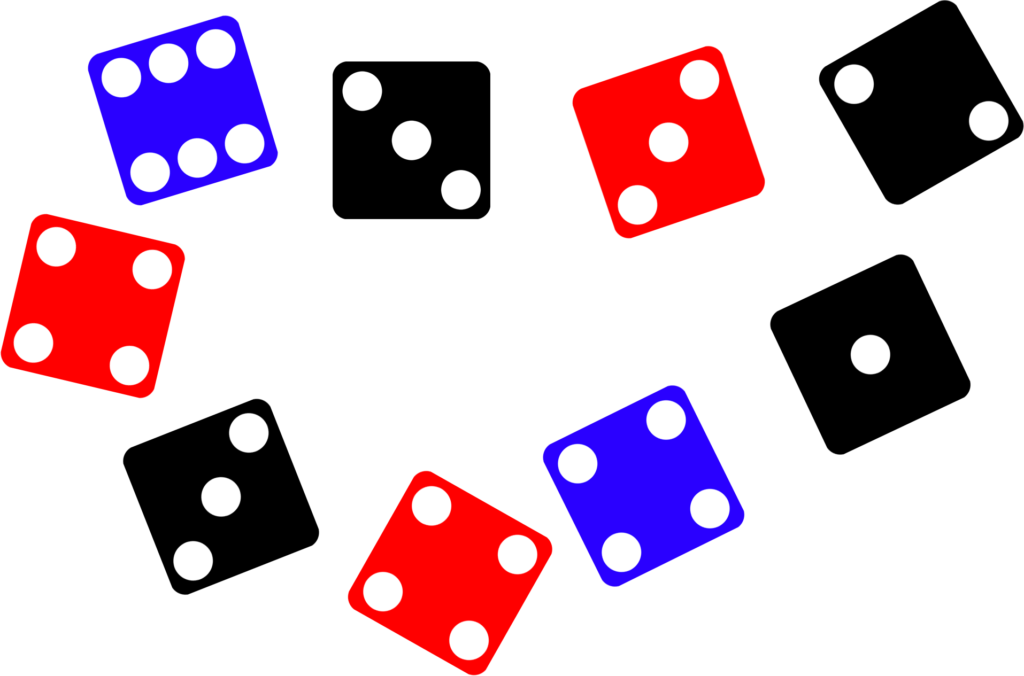
However long that took, it slowed the pace, and that’s not something we wanted. It also still allowed for more mitigation of dice than we liked. We wanted a game where a player with 1 dice still has a chance of winning, no matter how many dice the other player has.
So we switched the dice comparisons from total, to the most of the highest number. Whoever’s dice show the highest number wins, and if it’s a tie, whoever has the most of that number wins. This became an elegant and efficient solution. A player with more dice has a greater chance of winning, but it is never certain, and it’s easy to see at a glance who has won the dice roll.
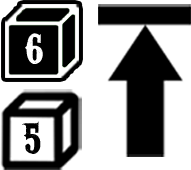
We had our output randomness, and some mitigation- simply have more dice for a greater chance to win. This led to needing a way to stop players simply loading up the caskets with all their dice, but we’ll get to that in a later diary. For further mitigation we used tokens which can affect dice rolls in some way, but we also have power souls!
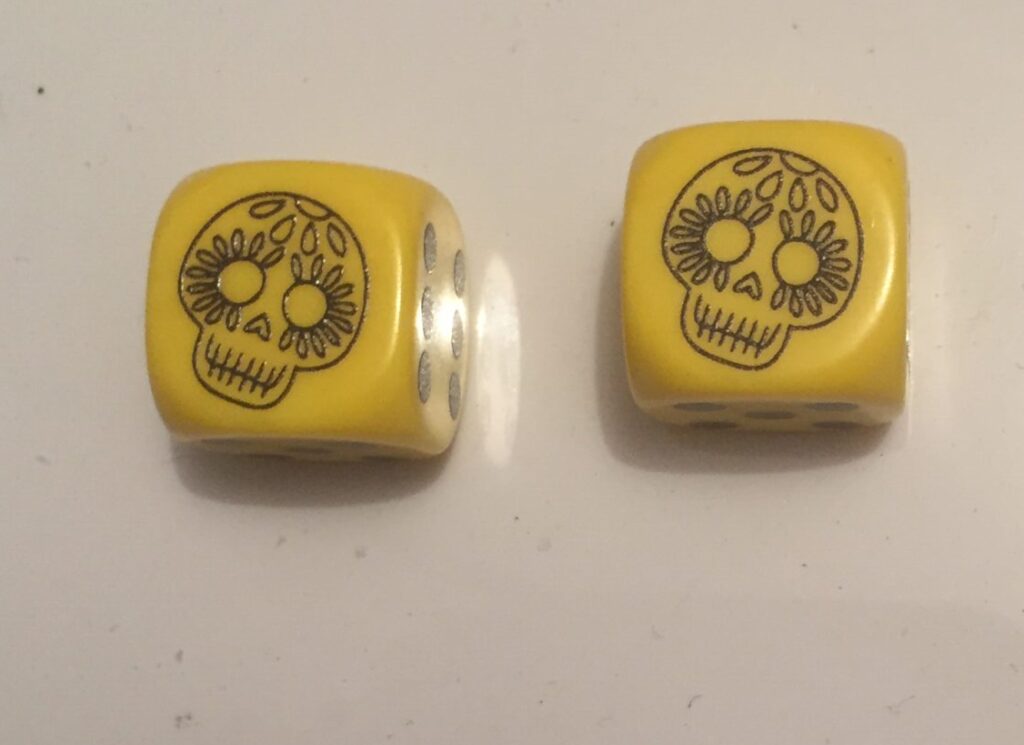
You can’t have a dice game without custom dice, so here are ours. The 3 & 4 have been replaced by Dia de Muertos skulls, which are wild. Why not just replace them with 6’s? Well, for that answer we need to see what the caskets do, and understand why a player might choose for them to not represent 6 at all. These power souls can be gained by a player and used to mitigate the luck in each of the caskets. But, as with all good dice games, you can’t guarantee your luck will hold out.
Sounds really interesting Mark. Looking forward to playing the game.